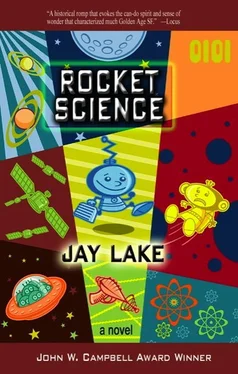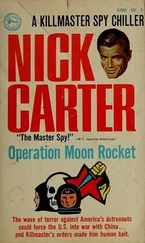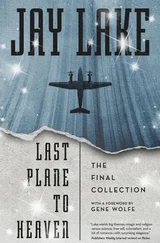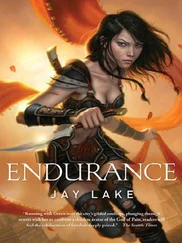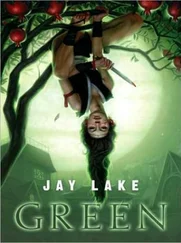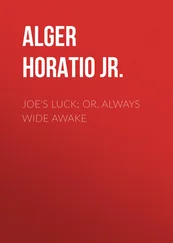Mr. Bellamy smiled at me, little yellowed teeth peeking out from behind pale lips like fat caterpillars crawling across his face.
“On the other hand,” he continued, “you do your part slow, stall for time, guess what happens? We kill you slow and bad, then go find ourselves another aeronautical engineer. What do you think, Floyd? How could we do it? Give young Vernon here some ideas to think about.”
He was so close behind me I could feel his breath on top of my head. I imagined that butcher knife in his hand, twitching toward the back of my neck, aching to cut into my spine, slicing my throat the hard way — back-to-front.
“I don’t know, Daddy,” Floyd said. His voice was strong again, back under control in the presence of his father and Mr. Neville. But what he’d said in the outhouse… he didn’t believe in this… craziness. Floyd, who’d carried me when I couldn’t walk as a kid. “I don’t reckon Vern will be any kind of problem.” His fingers settled firm upon my shoulder. Was this my oldest friend talking? Or the surprising lunatic who’d come back from Europe? “He knows what’s good for him.”
Mr. Neville set down the napkin. “Kneecaps are good. While’s he’s sitting down, a bullet right from above. Blows the calf away. Cuff his hands, dump him in the slit trench before you fill it in, let him decide whether to drown in shit, suffocate under the dirt or just bleed out.”
“Uh,” gasped Floyd behind me, like he’d been sucker punched. His mother was out in that trench. But he was behind me, with a knife, instead of helping somehow.
I couldn’t do much about Mr. Bellamy or Mr. Neville — justice for them would come from somewhere else. But right then I decided I would kill Floyd if I had to tear his liver out with my bare hands. If Floyd lived out a long life in Kansas while me and Dad and my brother Ricky and who knows how many others rotted in the fertile ground, then there was no goodness in the world at all.
My hate must have showed in my eyes like a harvest burn-off because Mr. Bellamy stirred in his chair, his hand stroking the pump of the shotgun. “Floyd, I do believe Vernon’s showing some signs of commitment here.”
That irritated me. I hawked and spat on the table, then bit my lip. I might as well try to understand it all, if I was going to die for it. Start at the top, with what was most important. “What did you do to my dad? Why?”
Mr. Bellamy looked surprised. “Nothing. I know there was trouble, but that wasn’t our doing.”
“Aren’t you Nazis?”
Mr. Bellamy laughed, exchanging grins with Mr. Neville. “Us? Nazis? Boy, you’re crazy. I’ve been a Republican for sixty-eight years. Why in blazing hell would I want to be a Nazi?”
“Nah,” said Floyd behind me, his voice solid again, “there’s Nazis out there, all right. That’s why Mr. Neville is here, and the boys on the roof. But we ain’t the Nazis.”
“Who is?” I asked.
“Oh, take your pick. I don’t rightly know for certain,” said Mr. Bellamy conversationally. He shouldered his shotgun, sighting along the barrel toward my face. “Probably Sheriff Hauptmann. He always was a fascist sympathizer, ever since he came home from Russia. Definitely one of those Captain Markowicz fellows is a Nazi. Heck, maybe both of them are. Doesn’t matter much. Their day is done, but the corpse ain’t quit kicking yet.”
“And I’ll bet there’s one in the public library,” I said bitterly, thinking of Mrs. Sigurdsen.
“I expect you’d be surprised,” said Floyd behind me. “About who’s who in Butler County, I mean.”
“Yep,” said Mr. Bellamy. “Know what your dad did in the Great War?”
“Yes.” I’d heard the stories, in and out of drink. They changed from time to time, but the substance was always the same. “He fought in the trenches with Pershing in France.”
“Nope.” Mr. Bellamy broke open the shotgun and checked the shells. “He killed Germans and Hungarians on the Eastern Front. With me and Doc Milliken. Only, Milliken wasn’t a doctor back then. Just a guy who was real good with a knife.” He paused reflectively. “Of course, that kind of follows on I guess. Me, I broke necks. Sometimes kneecaps and elbows.”
“Dad,” I whispered.
What else hadn’t my father told me? Everybody had his secrets, that was a fact of life. Today, at the age of twenty-three, probably breathing my last, I realized that I had never known anything about the sad old drunk who was my father.
“Grady was a good man,” said Mr. Bellamy. “I’m right sorry he got mixed up in this. I reckon they was trying to frame you up.”
Was , he’d said. Thinking about Dad brought me close to tears. My old man had to be dead as a doornail by now, and I was going to die soon myself, one way or the other. But if I kept Mr. Bellamy talking I might learn something I could use. Maybe Pegasus could find a way to get a message out, if I got enough information to feed it to the computational rocket before these madmen killed me.
It was time to change the subject. I had always thought Mr. Bellamy was an ineffectual old man living on his memories. Now he was behaving more like Al Capone. If nothing else, he was a heck of an actor. “How did you get involved in all this?” I asked.
“The Eastern Front collapsed in 1917,” said Mr. Bellamy. “We Kansas boys was working for the British Army, on a special little project that our own country wouldn’t have a part of.”
“Kind of like Roger’s Rangers,” said Floyd, still behind me.
I was beginning to understand how he might have been drawn in — hero stuff was always interesting to Floyd, like real life comic books, even if he didn’t want to do the hard, dirty work that went along with it. At least not til the war had pulled him in.
“Shut up, boy,” said Mr. Bellamy. “This is my story, and I’ll tell it.”
He looked me over carefully, the same weighing up Mr. Neville had given me earlier. That seemed strange, given that Mr. Bellamy had known me almost all my life. I was an open book. What was left for him to judge?
“Your Daddy and me and Doc Milliken were in the Kansas Militia, back before the Great War, playing hard boys to make ourselves feel good. Then that fight started up in Europe and President Wilson tried to keep this country out of it. But there were lads like us that wanted in on the action. We’d grown up on stories of the Mexican War and Civil War, watched the Spanish War go by without us. We were already hitting thirty, and feared we wouldn’t make it in. This was our turn.
“Anyway, there were American pilots flying for the French, and American boys fighting for the English. The British Army came out this way, looking for strong, able men for a special project. They signed us up, taught us stuff they learned in the Boer War, stuff they couldn’t teach their own boys for fear of the newspaper publicity.”
“I’ve heard of the Boer War.”
“We were eager to go,” Mr. Bellamy continued, as if I hadn’t said a word. He seemed to be slipping back in his own mind. “Doc Grainger was still alive then, and Milliken hadn’t finished school yet. We wound up killing Germans for the Russians on the Eastern Front. We did a good job, until the Russians sold out to the Germans in ’17. We got interned, in a camp at the mouth of the Pechora River, where it flows into the Barents Sea. It was cold as hell, nothing to eat but ice, snow and rifle butts.”
Somehow, this story was coming full circle to Pegasus and its tomb in the Arctic ice.
“One thing lead to another, and eventually we was let go. We just stood there on that frozen beach in front of the gates of our camp, not knowing where to turn. We all made it home by different routes. Doc Milliken got rescued by a British unit fighting for the Whites outside of St. Petersburg. Your dad stowed away on a freighter from Arkhangelsk to Iceland.”
Читать дальше
